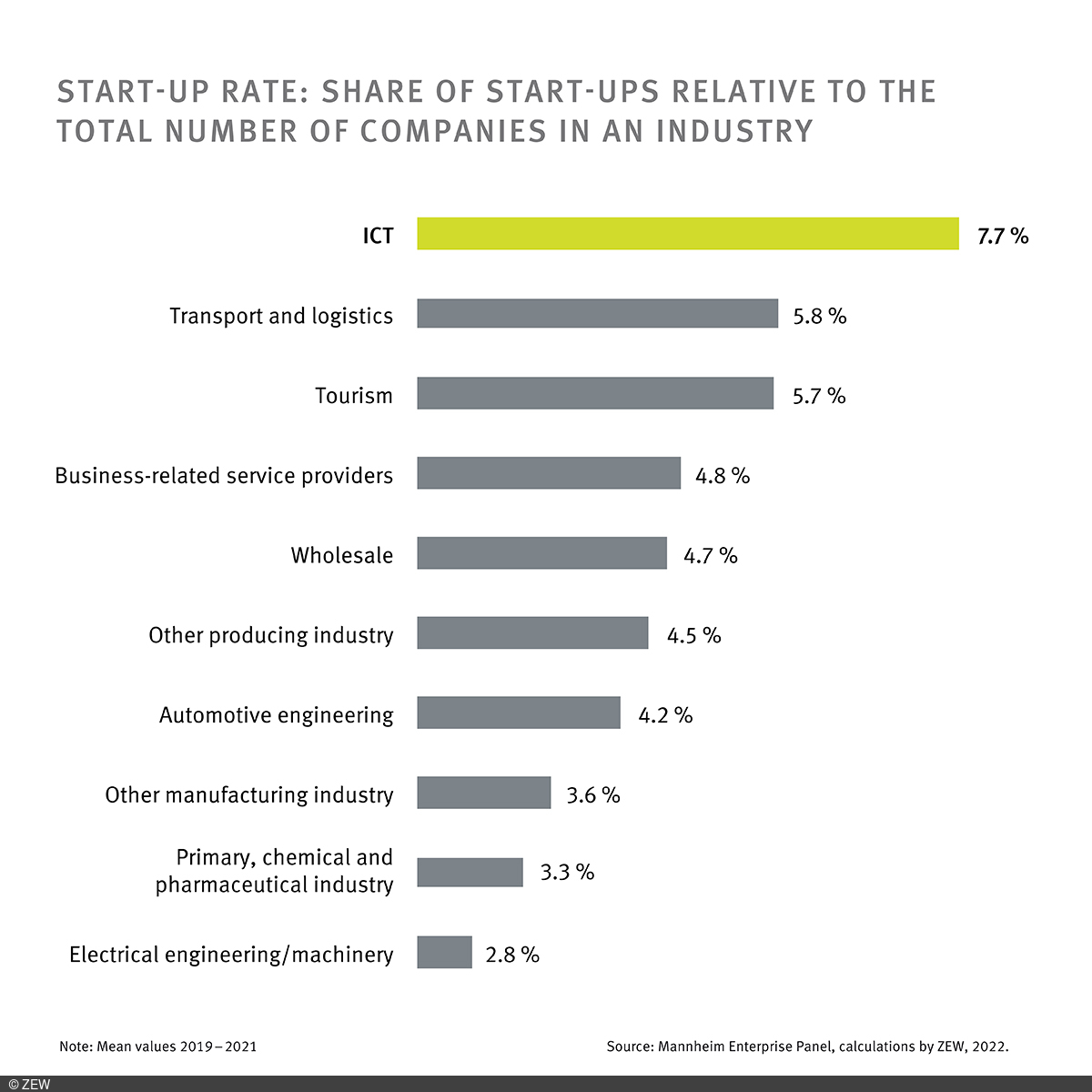ICT Sector Leads the Way in Innovation and Start-ups
ResearchThe study “IKT-Branchenbild” (“ICT Sector Profile”), compiled annually on behalf of the German Ministry for Economic Affairs and Climate Action, concludes that the information and communications technology (ICT) sector, with its innovative products and services, is an important driver of digitalisation across all industries of the German economy. In addition, the ICT sector makes an above-average contribution to overall economic growth. “This makes it a key factor in maintaining and further enhancing Germany’s future viability as a business location. The sector proved this especially during the COVID-19 pandemic,” explains study author Dr. Thomas Niebel, researcher in ZEW’s “Digital Economy” Unit.
A particular strength of the ICT sector is its ability to innovate. This is reflected, for example, in the innovator rate, i.e. the proportion of companies that have introduced a new or considerably improved product or process in the last three years. With an innovator rate of about 80 per cent for the period 2018 to 2020, the ICT sector ranks first compared to other sectors, ahead of electrical engineering and machinery (around 77 per cent) as well as automotive engineering (75 per cent). The ICT sector also demonstrates its innovative strength in terms of the share of sales generated with market innovations. With a share of just under seven per cent, it ranks second among German industries and is only exceeded by automotive engineering (around 11.5 per cent). A further indicator of the innovation potential of a sector is the number of start-ups. With around 8,250 new companies and a start-up rate of just under 7.7 per cent over the last three years, the ICT sector comes in first place compared to other industries. The start-up rate measures the share of newly founded companies in relation to all companies in a sector. With 5.8 and 5.7 per cent, respectively, the transport and logistics sector and tourism record the second and third highest start-up rate. The trend of increasing start-up activity in the ICT sector has thus continued since 2017, although this is driven solely by ICT service providers.
In 2021, the ICT sector generated sales of almost 304 billion euros. After a temporary decline in sales in 2020, the ICT sector thus managed to resume the previous trend that had seen six years of growth in a row. The sector’s sales increased by around 37 billion euros, which corresponds to growth of just under 14 per cent. In a sector comparison, only the primary materials, pharmaceuticals and chemicals (around 26 per cent) and transport and logistics (around 16 per cent) sectors grew more strongly in 2021. The gross value added of the ICT sector also recorded a strong increase, rising by around 10.5 billion euros to 134.6 billion euros. This means that the added value generated in the production process of the ICT sector also continues its positive trend and grows for the eleventh consecutive year. Overall, the ICT sector generated about 5.4 per cent of the value added of the entire commercial economy in 2021.
These and other results can be found in the study “IKT-Branchenbild 2022” (“ICT Sector Profile 2022”; in German only).
About the study
The study is part of a comprehensive research project on digitalisation, which has been undertaken on behalf of the Federal Ministry for Economic Affairs and Climate Action. The project, which is entitled “Measurement of the Digitalisation of the German Economy”, is conducted by a consortium formed by ZEW Mannheim (consortium leader), the Cologne-based German Economic Institute (IW), IW Consult, the Institute for Industrial Management FIR at RWTH Aachen University, and the German Institute for Economic Research (DIW).

